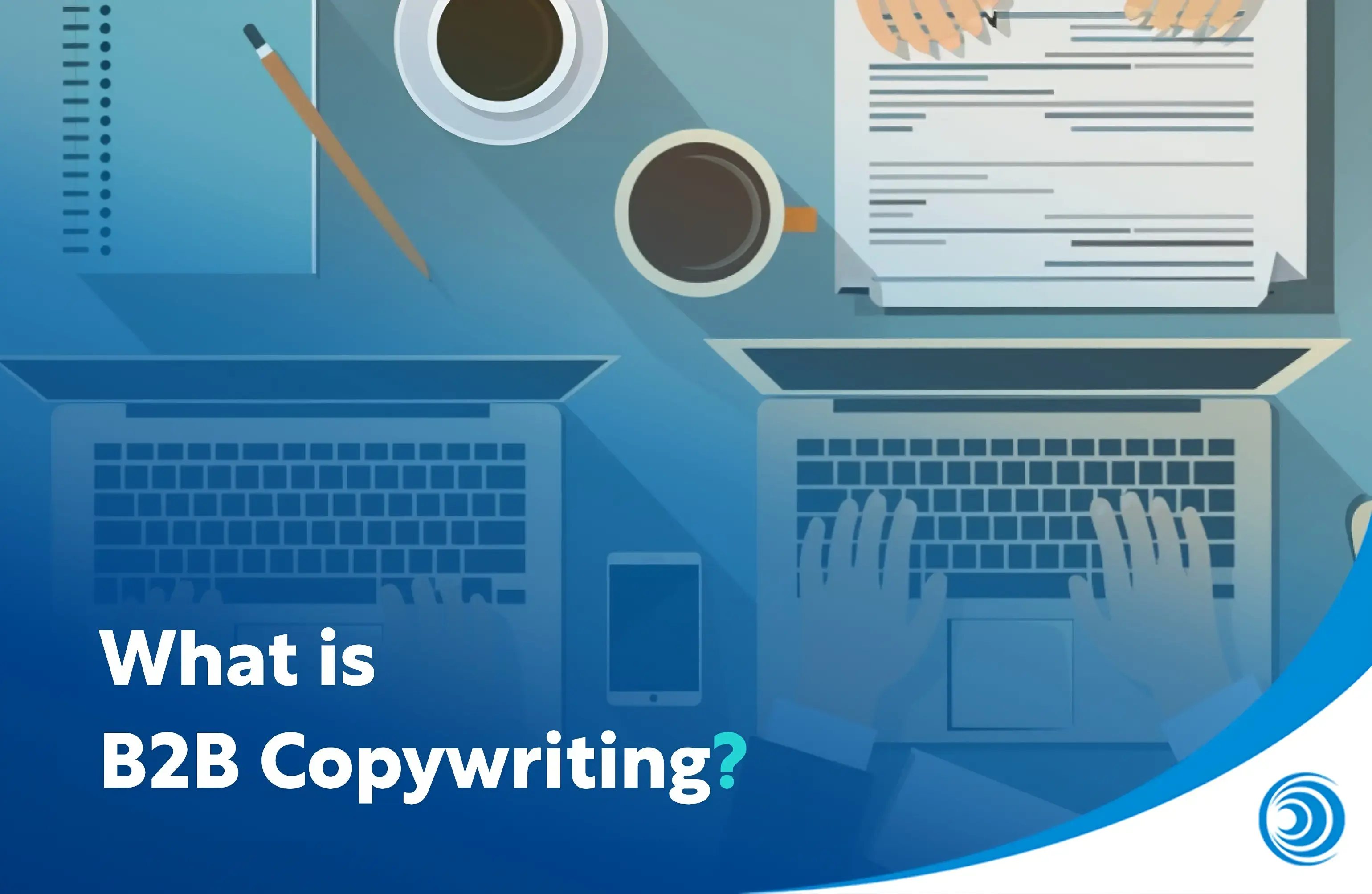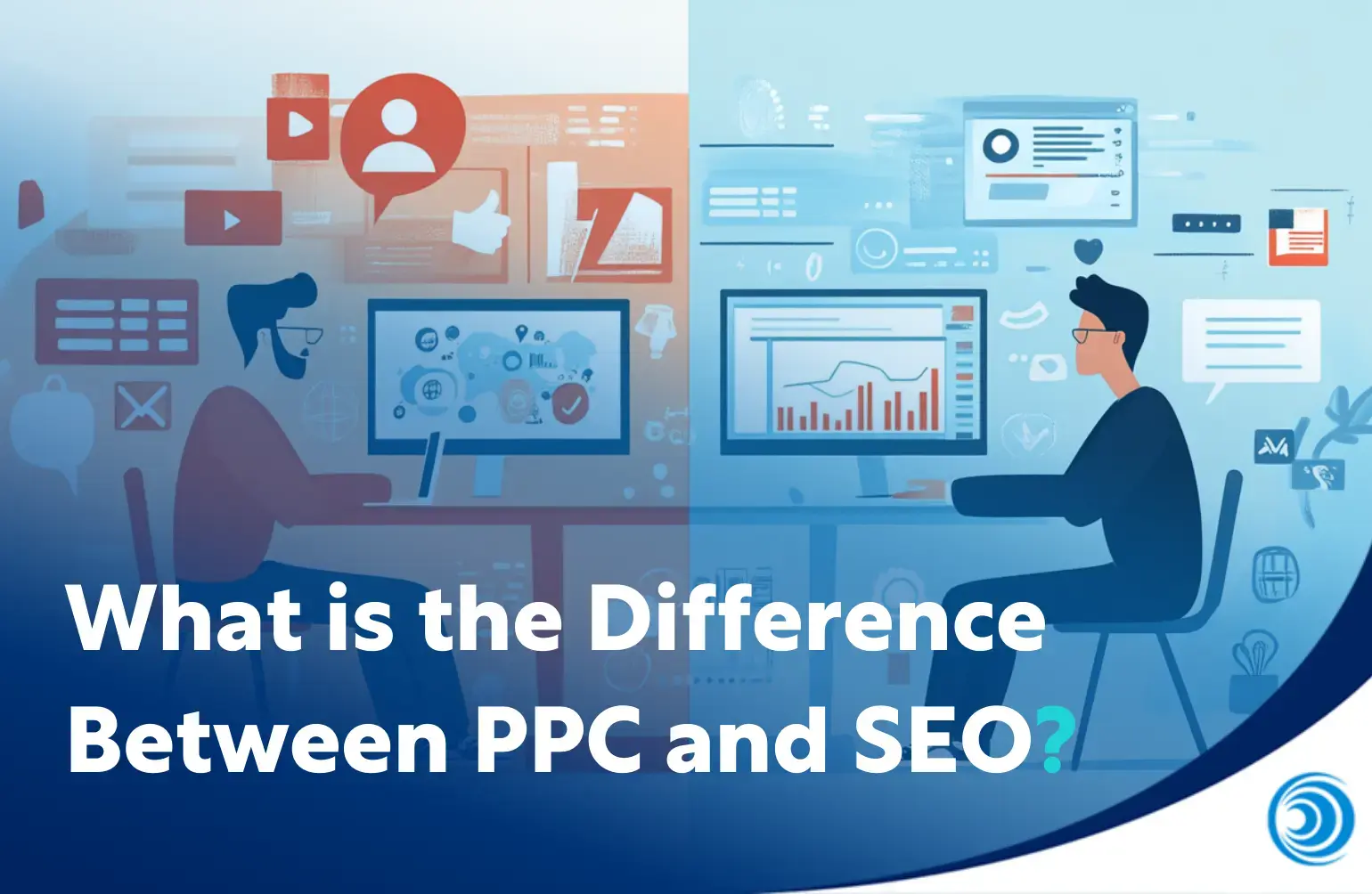
What is B2B Copywriting?
B2B copywriting is a specialised art form that blends the precision of presenting factual information with the power of storytelling.
Unlike B2C copywriting, which seeks to emotionally connect with individual consumers; B2B copywriting targets businesses as a whole, with the goal of influencing key decision-makers within organisations.
The trick is not just to inform but to persuade potential customers by showcasing the tangible benefits offered by a product or service.
No matter the copy being written, this article details the versatile and strategic planning behind B2B copywriting - an indispensable skill that should be at every marketer's disposal.
What is B2B copywriting?
Copywriting is the creation of written content, also know as copy. It intends to persuade readers to take action.
B2B copywriting is a niche in itself.
The art of B2B copywriting is to inform potential and existing customers about products and/or services.
To convince potential buyers of a product is essential in highlighting its benefits, not just the product itself. B2B customers tend to be drawn to benefits such as increased profit, productivity and reduced cost.
For this reason, B2B copywriting must be factual and informative - clients want supporting evidence around how the product or service provides value, especially over competitors.
Content writers must keep in consideration that copy must captivate not just a single reader's attention, but a whole organisations.
B2B copywriting comes in various different shapes and sizes - from web copy on landing pages and eBooks to a blog post and white papers. The content type should be carefully selected based on the desired response from the person reading or what target audience it is designed for.
Copywriting for businesses is incremental in the increase of sales. Engaging marketing copy is what bridges the gap between leads and conversions when pushing them down the sales funnel.
Differences between B2B and B2C copywriting
B2B is business to business. B2C is business to consumer. The difference is in the name, but what does it actually mean when it comes to copywriting?
They each require a unique and engaging content marketing strategy. B2C copywriting focuses on creating a connection with the reader, targeting a specific pain point, and provoking an emotional reaction. In contrast, B2B copywriting leverages logical arguments and fact to engage key business decision-makers.
Each piece of content aims to attract leads from differing target markets.
B2C copywriting hopes for a reactive response from the customer; best examples of this include making an impulsive purchase or signing up for a subscription. This makes the customer journey shorter for sales teams, as in many cases only one resource is needed to convert the buyer.
The sales cycle for B2B is typically more lengthy. B2B copywriters must produce content that is complex and deeply researched. It must appeal to a business, including the senior team within the institution. Meaning multiple people will need convincing.
The benefits of B2B copywriting
A successful copywriting strategy presents many benefits for marketers.

Increased conversion rate
70% of B2B marketers use conversion rates as a leading measurement of the performance of their copy.
The aim of B2B copywriting and content creation is to increase sales and conversions.
Many prospective clients are likely to research your product and/or service offering, and may still be unsure after significant investigation.
Most writers aim to display the benefits of the product or service, and what makes the business unique, when writing copy. When done successfully, potential clients are much more inclined to close a deal.
Wider brand awareness
Good B2B copywriting is a great way to increase brand awareness. Displaying a business as a thought leader helps to establish a brand's voice, values, and core messaging.
When written with a consistent tone of voice, it can help potential customers resonate with not only the offering, but the business itself.
Positive brand messaging triggers the development of trust between businesses, initiating a fruitful relationship.
Exemplary marketing copy is a fantastic way to set your brand voice aside from other businesses and competitors. A writer's ability is crucial in to showcasing a brand's USPs.
Boosts customer retention
Quality copywriting and content help to establish businesses as a thought leader, giving them industry influence.
A credible reputation must be established - initiating trust between the buyer and seller before the transaction has even started.
Creating a memorable brand is likely to retain customer loyalty. Customer retention indirectly generates more qualified leads due to word-of-mouth and industry awareness.
What makes good B2B copywriting?

The ability to draw readers attention is what makes good copywriting. There are many elements that go into this:
Research your target audience
When crafting concise copy, whether that be for a landing page or product descriptions, it's vital copywriters educate themselves on the relevant target audience.
Although, B2B copy must target an institution as a whole, businesses are still made up of people. Writers should construct copy that speaks to the individual.
One method to help tailor a copy is to create user personas. This is a stereotypical customer within your target audience. Through research you can create a 'model customer' that will help you visualise the audience you are writing for.
Creating user personas is a great method to tailor individualised copy. A user persona is a business's steroetypical customer. Through thorough research, marketers can generate a model that can help visualise the 'ideal' customer.
Tools like HubSpot offer persona generators to assist in this process, ask the following question to help build an Ideal Customer Profile (ICP):
-
Who will reading this?
-
How will it benefit them?
-
What are their aims? How can your product help them achieve them?
-
What problems are they likely to have? Is it a problem in the wider industry?
-
What competitors will there be? What can we offer that they cannot?
Once these questioned are answered, B2B copywriters can then focus on crafting copy for maximum impact.
Tell a story
Historically, B2B copywriting took more of a direct and data driven approach. There was less focus on generating awareness around the 'perfect' brand.
However, there has been a shift to a more emotional appeal.
A great way to forge an emotional connection with the reader is through brand storytelling. It is important to create a brand narrative that is relatable and human. People like people, a customer is more likely to work with a brand they trust and like. Even in a business setting, the only way to build a rapport is through an emotive response.
Although more often seen within enterprises, small businesses need a clear and concise brand message and brand story too.
Provide evidence
Facts and figures are 'Holy Grails' to the business world. A company is only as reliable as its sources.
Regardless of what is being sold, information must be backed up with credible statistics. Make sure data is presented in a clear and concise way.
Evidence displayed as statistics, case studies, and social proof are the most powerful ways to create content that is convincing.
Showcase the benefits
In order to engage potential customers, writers must take a direct approach and display the offering's core benefits. Don't just detail the features of a product and/or service, write about the merit it brings.
-
What can the reader gain from it?
-
Does it solve their pain points?
-
Can it reduce their work load?
-
Will it make them a better employee?
But more importantly, how does it benefit the business? Does it solve its pain points? Does it fit in with its business model and plan?
B2B companies want a tool that can reduce cost, as well as increase profit and productivity. The copy must demonstrate how the product and/or service can help cash flow, the business grow, or save time.
It's about quality (and quantity)
Quality
As much as we like to say 'don't judge a book by its cover', we're all guilty of it.
Only 8 out of 10 people will read the headline of an article, with the remaining 2 going on to read the copy.
Simple features like a snappy headline don't go unnoticed. First impressions count.
There are two considerations that every avid copywriter must make:
-
Be concise - No matter how good your copy is, a potential customer may be time-constrained. They do not have the capacity to sift through thousands of words to find what they're looking for. Remove any unnecessary words and phrases. Use engaging adjectives and active sentences. Keep an eye on the word count.
-
Avoid jargon - Refrain from overcomplicating your writing. The best writer will be able to communicate with the 'everyday person'. Remove complex words and phrases.
Lengthy research of the content's topic can help writers when communicating leading messages with clarity and impact.
Quantity
A consistent influx of content is just as important - if the quality meets the bar, of course.
It demonstrates effort, topical authority, and credibility.
The sales cycle is typically longer, as a number of people need to approve of the transaction and it is typically at a higher value.
Having a range of resources when researching can help potential buyers make a decision more efficiently.
But it is not effective to write a number of blogs, if that is not how your target audience gets their information.
Market research can help unveil how potential clients learn about your offering. If they don't visit a web page and read website copy, try creating a series of LinkedIn articles if they're more present on social media, or alternatively post in online communities and forums.
Researching what social media platforms your target audience use can help you gain more traction. Weaving content into social media posts on various platforms can promote a brand further.
Conclusion
B2B copywriting merges precise, factual content with captivating storytelling.
Compared to B2C copywriting, which targets the individual, B2B copywriting aims to influence industry leaders within an institution by emphasising tangible benefits such as increased profits, productivity, and cost efficiency.
Effective B2B copy must be clear, concise, and credible - appealing to both individual and institutional needs.
Quality and consistent content, tactfully tailored to the target audience, is fundamental in building brand awareness, increasing conversions, and fostering customer loyalty.
From landing pages to social media copy, the strategic approach that is B2B copywriting is essential in driving business success.
If this all sounds a lot to remember and you just want outstanding copy that tells your story, drop us a line!



